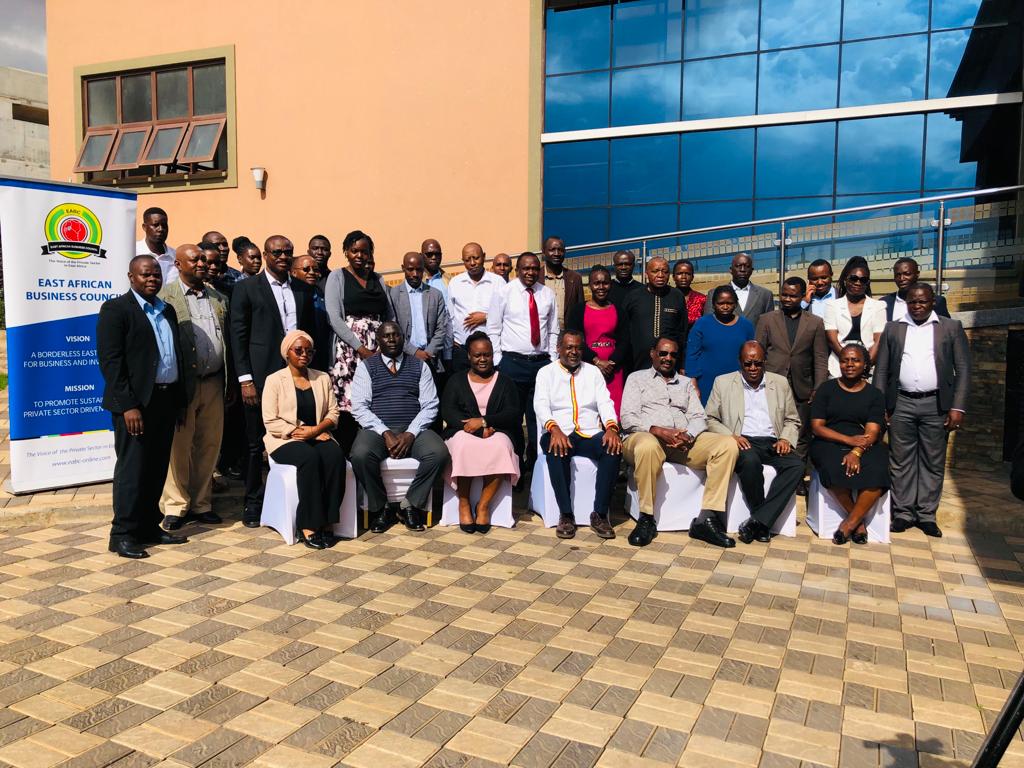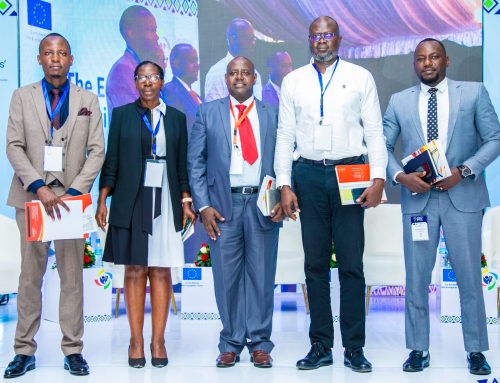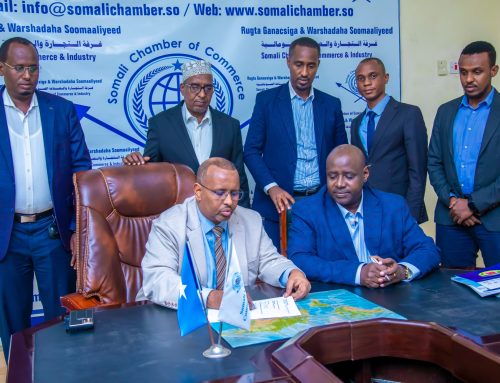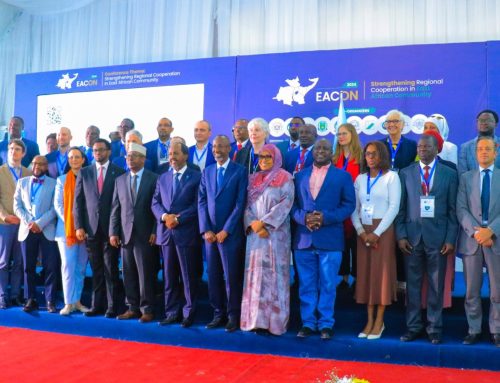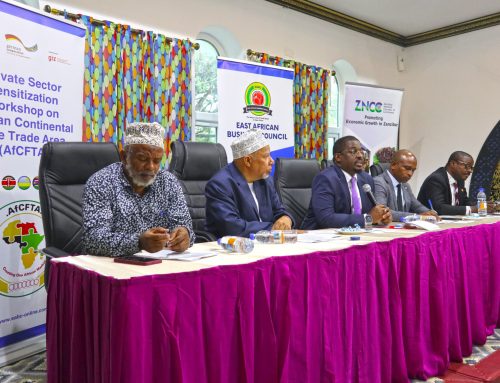Monday 7th August 2023, Kampala, Uganda: The East African Business Council (EABC), with support from the German Technical Cooperation (GIZ) in EAC, kicked off the two-day regional private sector consultative meeting in Kampala to discuss the progress of developing the EAC Tariff Offer under AfCFTA for sensitive products and the exclusion list.
In his remarks, Mr. Simon Kaheru, EABC Vice Chairperson, said “EABC-GIZ Private Sector Consultative Meeting set to Build Consensus on EAC’s Tariff Offer under AfCFTA Preferences for Category B & C Products.”
According to AfCFTA modalities for the submission of tariff offers, the sensitive goods under category B require 7 percent of the tariff lines to be liberalized over a period of 13 years for Least Developed Countries (LDCs) and 10 years for Developing Countries. For the EAC, the required tariff lines under this category are 398. The excluded goods, which are under category C, cover 3 percent of the total tariff lines and must meet the anti-concentration clause; that is, not more than 10% of intra-African imports should be excluded from preferential terms. For the EAC, the required tariff lines are 171. Furthermore, the exclusion list will be reviewed after five years from the commencement of trading.
So far, the EAC Partner States have agreed on 308 tariff lines under category B; hence they are remaining with 90 tariff lines that have not been agreed upon. Under Category C, the EAC Partner States have agreed on 75 tariff lines, remaining with 96 tariff lines that are yet to be agreed upon.
The main objective of the private consultative meeting is to come up with key recommendations that assist EAC Partner States as a bloc to converge to the required threshold of 7% of tariff lines, which is 398 tariff lines for category B, and 3% of tariff lines for Category C, which is 171 tariff lines.
The consultative meeting convened over 45 technical officials from the private sector across 7 EAC partner states.
Mr. Simon Kaheru, EABC Vice Chairperson, insisted that the EAC, as a region, should move faster in taking opportunities presented by the liberalization of trade under AfCFTA. He appealed to EAC private sector stakeholders to put aside national interests and focus on regional interests so that they can come up with regional harmonized proposals to resolve outstanding tariff lines as well as take into consideration the interests of the private sector as a region.
Vice Chairperson Kaheru urged the participants to consider that the main objective of the liberalization of tariffs is to boost intra-Africa trade, which is currently very low, and this must be realized if liberalization achieves the threshold of 7 percent for sensitive products and an exclusion list of not more than 3 percent of tariff lines and not more than 10% of intra-Africa imports.
While EAC Partner States have successfully submitted tariff offers for Category A products, which cover 90.2% of the total tariff lines, challenges have arisen regarding converging on agreed tariff concessions for Category B and C products among all five EAC Partner States. To address this challenge and reach convergence towards the required thresholds for both Category B and C products, the EAC Secretariat has planned a dedicated meeting of Permanent/Principal Secretaries from 14th to 17th August 2023 in Bujumbura, Burundi.
Mr. Adrian Njau, the Trade & Policy Advisor with EABC, emphasized that it’s very important for the EAC private sector to come up with harmonized regional recommendations and proposals. He said the outstanding tariff lines are few at 192 product tariff lines but are of significant importance in terms of food security, regional value chain, livelihood of East Africans, and industrialization.
“Apart from taking into consideration the importance of products B and C, the EAC private sector should keep in mind that AfCFTA is liberalizing EAC trade with the rest of African countries who are not members of COMESA or SADC and not with the rest of the world,” he added.
On his part, Mr. Lamech Wesonga of GIZ-EAC said it is high time the EAC Private Sector came up with regional harmonized positions on outstanding tariff lines to inform policy decision-making by the Governments of the EAC Partner States and quickly attain the convergence of the required tariff lines for Category B and C Products. Mr. Wesonga reiterated GIZ’s commitment to continue supporting the EAC private sector initiatives aiming at enhancing participation in the AfCFTA integration.
ABOUT EABC-GIZ PROJECT
The GIZ “Support to East African Integration” programme (SEAMPEC II) aids the East African Community (EAC) integration process, focusing on the needs of the private sector and social aspects. It is steered by the EAC Secretariat and implemented by the Deutsche Gesellschaft für Internationale Zusammenarbeit (GIZ) on behalf of the German Federal Ministry for Economic Cooperation and Development (BMZ).SEAMPEC II works to improve the framework conditions for economic growth in the EAC, including the removal of identified trade barriers and providing assistance to the business sector in developing policy recommendations. Additionally, the program supports various economic sectors in implementing regional agreements and enhancing framework conditions to increase value-addition. It also plays a vital role in capacity development for selected economic actors in the EAC region, focusing on trade and the implementation of regional or continental agreements, including the African Continental Free Trade Area (AfCFTA) Agreement.

